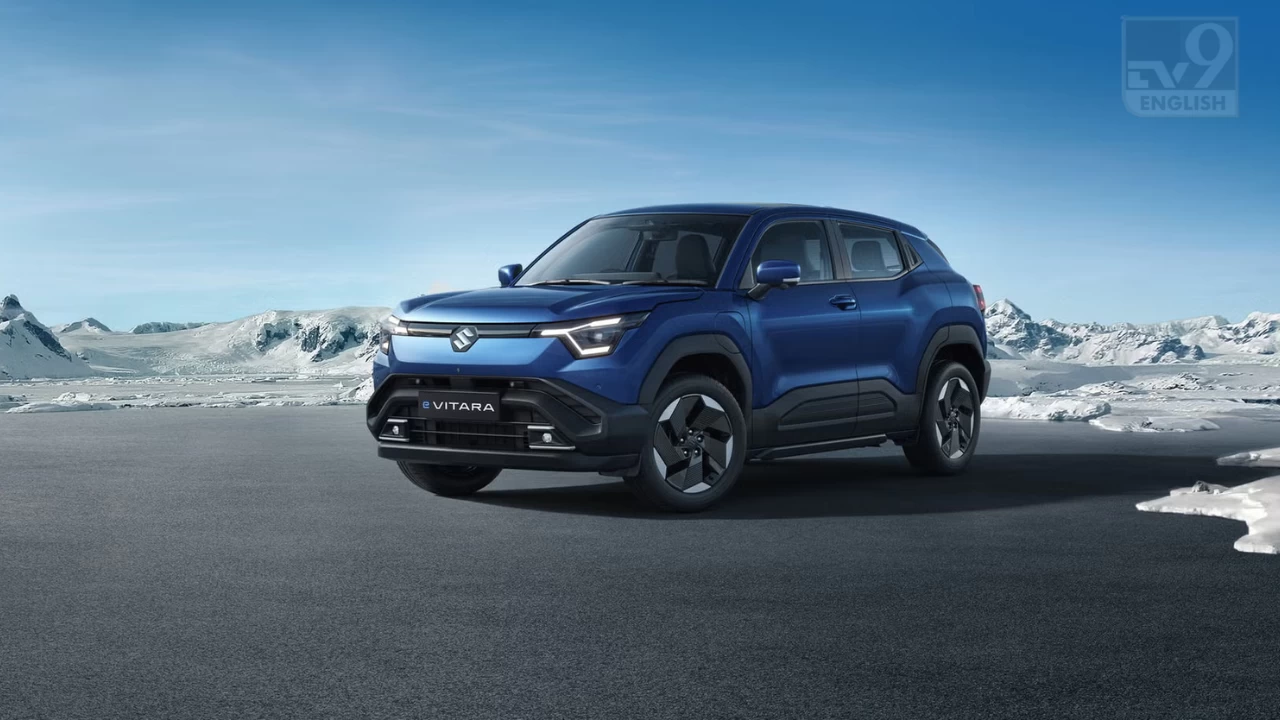

By signing in or creating an account, you agree with Associated Broadcasting Company's Terms & Conditions and Privacy Policy.


By signing in or creating an account, you agree with Associated Broadcasting Company's Terms & Conditions and Privacy Policy.

New Delhi: Maruti Suzuki India Limited are close to launching their first electric vehicle in the country. The e-Vitara had previously been unveiled at the Bharat Mobility Global Expo 2025. The carmaker will be starting the production of the e-Vitara on August 26th, and the launch should happen quite soon after. It will be competing against the likes of Hyundai Creta Electric, Tata Curvv EV, MG Windsor EV, and Mahindra BE 6.
The Maruti Suzuki e-Vitara boasts a contemporary and high-end design, featuring LED projector headlights, Y-shaped LED daytime running lights (DRLs), and front fog lamps. Coming as an EV, it does away with the radiator grille. The side profile comes with black cladding and 18-inch aerodynamically optimised alloy wheels. On the back, it gets a black bumper and three-piece LED taillights, which are linked with a glossy black strip.
Inside, the e-Vitara comes with a dual-spoke steering wheel with a dual-screen dashboard configuration. This setup gets a 10.1-inch touchscreen infotainment system and a 10.25-inch digital instrument cluster. It also gets things like an auto-dimming interior rearview mirror (IRVM), semi-leatherette seating, an electronic parking brake and a wireless phone charging station.
The vehicle is equipped with ventilated seats, featuring a 10-way adjustable driver's seat and a panoramic sunroof. Standard safety features include seven airbags, a 360-degree surround view camera and even Advanced Driver Assistance System (ADAS) technology.
The UK market model indicates battery options with both 49 kWh and 61 kWh options. The 49 kWh has a WLˇP range of 344 km and comes with a front-wheel drive configuration, making 142 bhp and 193 Nm of torque. The 61 kWh can be had in both front-wheel drive and All Wheel Drive options. In the front-wheel-drive trim, the range is 426 km with the electric motor making 171 bhp and 193 Nm of torque. The all-wheel drive comes with 395 km of range with 181 bhp and 307 Nm of torque.
The charging duration differs for batteries. The 49 kWh battery charges from 10 to 100 per cent in 6.5 hours with a 7 kW AC charger and in 4.5 hours with 11 kW charger. The 61 kWh battery requires almost nine hours and 5.5 hours, respectively. Further, the two battery packs can go to 80 per cent charge in 45 minutes through a DC fast charger.








